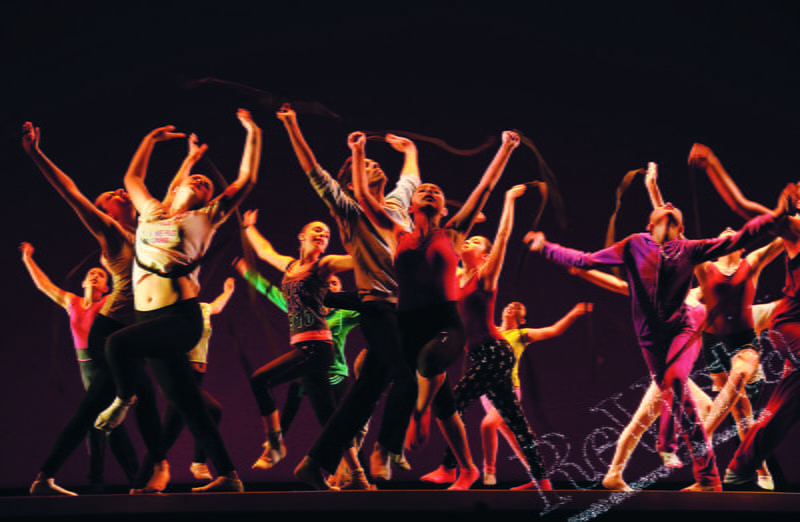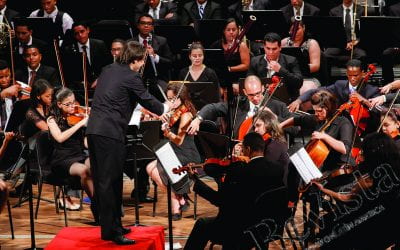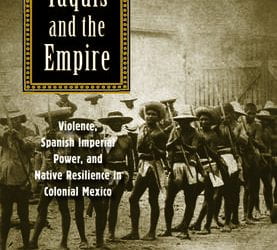Teatro del Lago
Education Through Music
Teatro del Lago in Frutillar in the south of Chile offers spectacular views of lakes and volcanoes. This natural setting has attracted international and Chilean artists, ranging from Yo Yo Ma to Gil Shaham to the Bamberg Symphony, and the Youth Orchestra of the Americas.
When my team and I inaugurated the theatre in November 2010, we saw it only as a performance space, one that would be able to nurture an entire region with creativity and a new quality of life.
In the original concept, education did not play a large role. However, quite early on, we discovered the importance of educating through music. Teatro del Lago now manages an arts school with musical instrument classes and an extensive ballet program (connected to the Royal Academy of Dance in London). Five years after its inauguration, Teatro del Lago has become an education and arts center receiving 20,000 students per year through its several innovative and integrative education activities.
Teatro del Lago has also created an International Orchestra and Choir Academy to bring together students and young professionals from all over Latin America and the world to jointly create sophisticated musical programs. In addition to these formal international programs, Teatro del Lago recently created two community programs “Puedes Bailar” (You Can Dance!) and “Puedes Cantar” (You Can Sing!).
These programs were inspired by the realization that not every child and every family can easily afford to buy or rent a violin, a piano or any other instrument to bring music into their children’s lives. Inspired by several talks and readings of Sir Ken Robinson, an English author and adviser to arts-in-education programs, as well as by other creative leaders, we focused on the fact that most of us have a working body and most of us have a voice. With that body and with that voice we can dance and we can sing without the need for any other instrument.
“Puedes Cantar,” like its sister program “Puedes Bailar,” recruits youth of varied social economic backgrounds from many of the region’s schools—one of the essential cornerstones of this program. Real integration does not happen in programs that “only” help vulnerable students. Connecting children from different social backgrounds is what matters, especially at an age in which social background is not yet important.
Teatro del Lago’s Choir Movement, which began six years ago, now has 120 participants and incorporates a children’s choir, a youth choir and a choir for young and older adults. The choir performs traditional music, as well as more contemporary forms.
The benefits of a choir in education reflect the values of our society in general: listening while singing requires multitasking, coordination, discipline, teamwork, expression and learning how to read music as an additional creative world-language. The incorporation of one’s own voice into the sound of a choir is a sensitive multitasking act; the tuning of the voice is a corporal feeling, steering the voice in a controlled and coordinated way. We work in teams, thus fostering the sensibility that enhances community and social understanding. Combining those techniques with the emotional activity of music, like singing or dancing is proved to be more effective than learning without emotion.
Neuroscience tells us that all emotional activities are stored and remembered in the amygdala, the oldest part of the evolution within our brain. That means learning certain procedures or skills in combination with an emotional experience will make them firm and last forever. Tests with people afflicted with Alzheimer’s disease have proved that though the patients forget the lyrics of songs early on, when the melody is played the memory of the text returns.
All these scientific discoveries should be applied in simple ways at an early age: in education.
In addition to the “Puedes Cantar” program, “Puedes Bailar” brings together about seventy teenagers from twenty schools in seven communities each year. These youngsters, between 14-18 years of age, would normally never meet, and the reality is that they would probably never dance. Teenagers in Chile move within their one-and-only social group, that of the school. Creating an additional social horizon by making new friends from different social backgrounds and communities enhances social ability, connectivity and communications skills.
In addition, learning modern dance teaches these students discipline, stamina, artistic creativity, presence in front of others and presence on a big professional theatre stage, as well as communication (also corporal silent communication!) and coordination, teamwork and friendship through the arts. Shy children or those with low self-esteem transform their personalities and acquire leadership skills.
In November 2014, the group performed in the Annual Gala’s special program with choreography by New York-based Christopher Huggins. The Chilean youth shared the stage with dancer-“colleagues” from Philadanco/Philadelphia. I created “Puedes Bailar” and “Puedes Cantar” after reading extensively in the field of neuroscience. I tried to apply this knowledge in the arts. Today, Teatro del Lago trains a young generation during after-school activities. This is the generation we want to foster and nurture. This is the power of quality arts education programs, and it should be the goal of all education to re-focus on the essence of human value before sophistication of technical skills.
Dancing and singing are small steps in every life but are huge steps for society’s future.
Winter 2016, Volume XV, Number 2
Uli Bader is the creative director, co-founder and member of the Board of Directors of Teatro del Lago, Frutillar, Chile. Born in Germany, he studied music and arts administration and worked in several positions in the arts field in the Deutsche Kammerphilharmonie, Philharmonie Koeln, National Symphony Orchestra at the Kennedy Center in Washington, DC and Teatro del Lago in Chile.
Related Articles
When Music Changes Lives
English + Español
n 2004, I got a surprising phone call from Santo Domingo on one cold winter night. I was then studying musical composition in Strasbourg, France, a great opportunity for a young Dominican…
The Politics of Gay Marriage in Latin America
Despite its recent successes, the gay rights movement in Latin America is generally ignored in discussions of contemporary Latin American politics. Even students of Latin American social…
The Yaquis and the Empire
Winner of the 2015 Latin American Studies Association Social Science Book Award and runner-up for the 2015 David J. Weber-Clements Prize of the Western History Association, The Yaquis…





